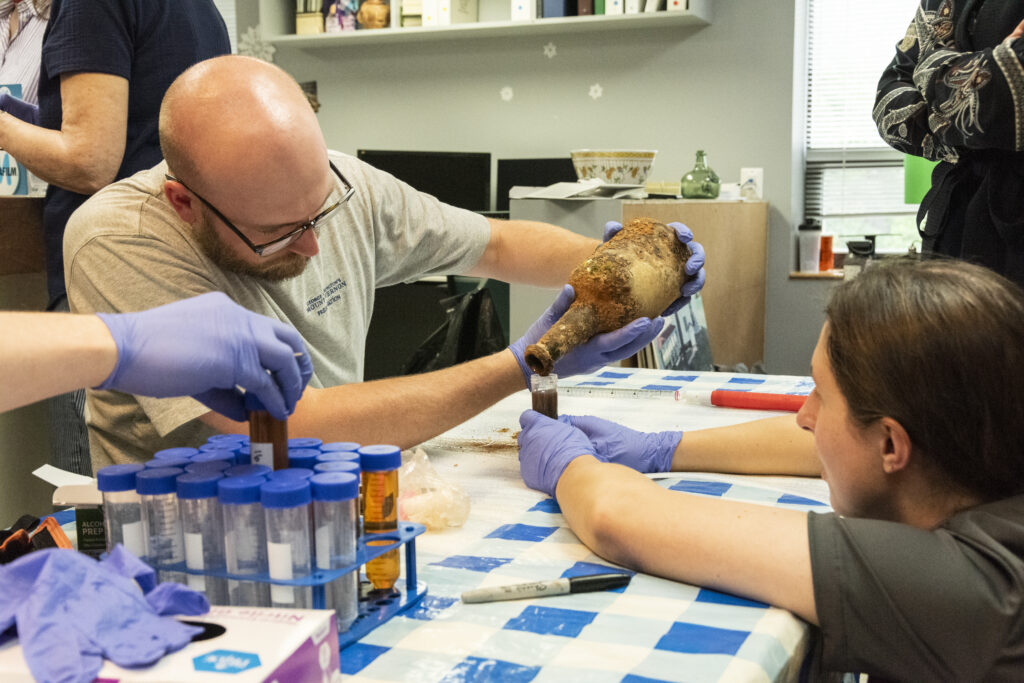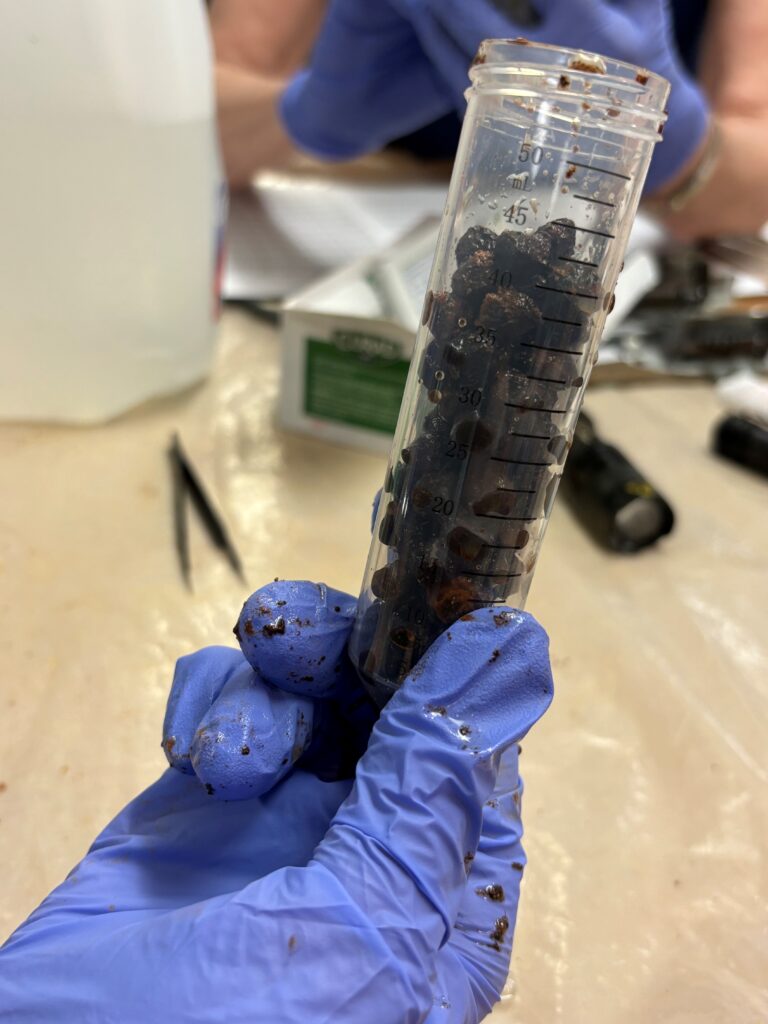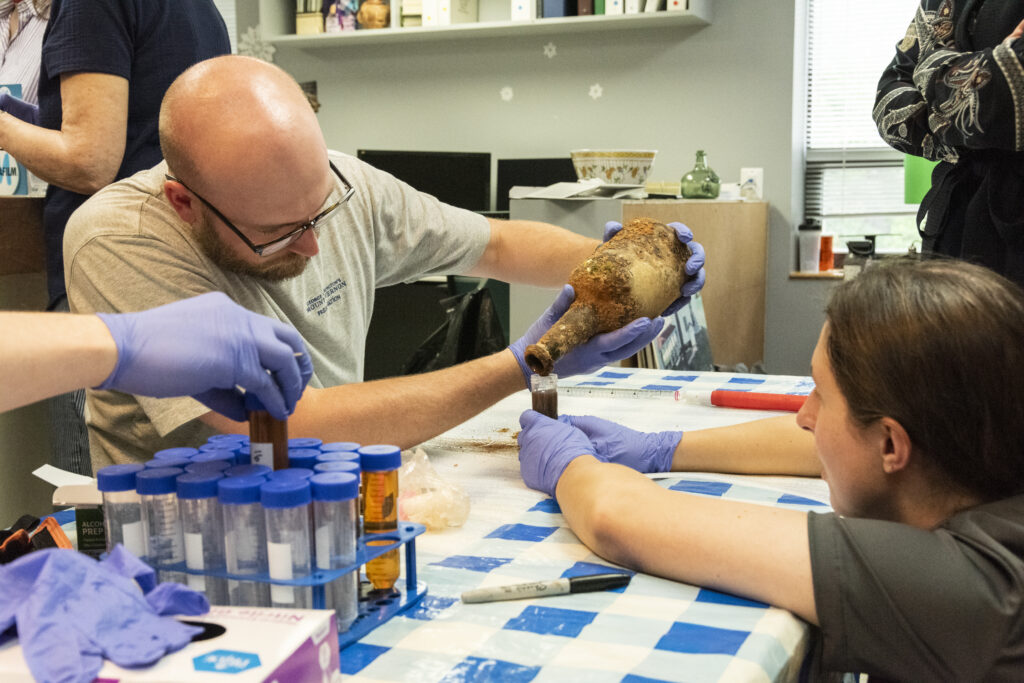
Archaeologists uncovered some 35 bottles in Mount Vernon that they believe to be cherries from the 18th century.
The discovery began a month ago when two bottles were initially unearthed in the cellar of George Washington’s Virginia mansion. Then, even more were uncovered including 29 bottles still perfectly intact and sealed. Some bottles included other berries that have yet to be identified but are presumed to be gooseberries or currants.

“Never in our wildest dreams did we imagine this spectacular archaeological discovery,” Mount Vernon President and CEO Doug Bradburn said in a statement. “To our knowledge, this is an unprecedented find, and nothing of this scale and significance has ever been excavated in North America. We now possess a bounty of artifacts and matter to analyze that may provide a powerful glimpse into the origins of our nation, and we are crossing our fingers that the cherry pits discovered will be viable for future germination.”
This happened amid the Mansion Revitalization Project, a $40 million project to restore the residence ahead of America’s 250th anniversary in 2026. Archeologists have also discovered other artifacts, including a lead shot, ammunition intended for game hunting, and arrowheads that are estimated to be anywhere between 3,500 to 5,500 years old.

“These perfectly preserved fruits picked and prepared more than 250 years ago provide an incredibly rare opportunity to contribute to our knowledge of the 18th-century environment, plantation foodways, and the origins of American cuisine,” said Jason Boroughs, Mount Vernon’s principal archeologist. “The bottles and contents are a testament to the knowledge and skill of the enslaved people who managed the food preparations from tree to table, including Doll, the cook brought to Mount Vernon by Martha Washington in 1759 and charged with oversight of the estate’s kitchen.”

CLICK HERE TO READ MORE FROM THE WASHINGTON EXAMINER
The pits were likely left in the cherries because, according to the National Center for Home Food Preservation, leaving them in prevents discoloration at the stem end. It would take over a pound of cherries in order to fill a pint. These are likely tart cherries as their acidic composition helped preserve them. these cherries are supposed to have been bottled raw because the stems were left on.
Washington grew cherry trees on his estate as early as 1760. He was known to graft the trees, which likely created a unique species of cherry. The U.S. Department of Agriculture’s Agricultural Research Service is conducting DNA extraction on the contents of the bottles.
Scroll down to leave a comment:








